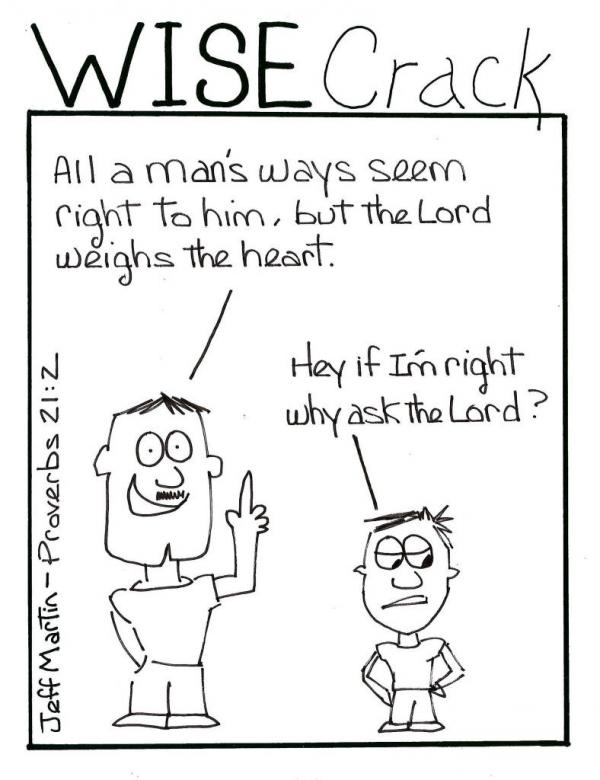Recently I read an interesting article that compared President Ronald Reagan and President Barak Obama's use of the word 'we'. The article noted that Reagan's use of the word 'we' was the populist usage, 'we' meaning everyone in the United States who is rooting for the good of United States. Reagan felt a brotherhood with his fellow Americans. Obama's use of the word 'we', however, is not populist, but instead 'we' meaning those that agree with Obama's agenda for the nation and are helping him to achieve it. Obama's brotherhood is by contrast... elite. This is a noteworthy observation. Pay attention to see if you notice the distinction yourself.
The article above reminded me of a similar observation about the use of pronouns in the Bible for God's family.
Isaiah said, "You meet him who rejoices and does righteousness, those who remember you in your ways. Behold, you were angry, and we sinned. We have been in sin for a long time. Shall we be saved?" (Isaiah 64:5 WEB). The great prophet Isaiah includes himself in the list of those having sinned and speaks to God as a voice for all sinners calling out to God. Isaiah shared a brotherhood with fellow sinners.
Peter said, "Let all the house of Israel therefore know certainly that God has made him both Lord and Christ, this Jesus whom you crucified" (Acts 2:36 WEB). Passionate Peter preaches a sermon that brings 3,000 people to their knees in repentance after the crucifixion of Christ. Peter is not somehow less noble or more hypocritical than Isaiah above, but instead shows us that it is more than appropriate to bring hardened sinners to account by preaching, 'YOU have sinned!' Peter is well aware that he also had sinned, denying Jesus with vile curses and swearing. So his sermon is not in the spirit of condemnation, but correction. But his sermon is not, 'I'm bad, you're bad, God's good, and we're OK.' No. Peter's audience is not welcomed into the 'we' with him until they also join him with hearts bowed in repentance. Peter was just the man for this sermon.
Paul also said,
1) You were made alive when you were dead in transgressions and sins, 2) in which you once walked according to the course of this world, according to the prince of the power of the air, the spirit who now works in the children of disobedience. 3) We also all once lived among them in the lusts of our flesh, doing the desires of the flesh and of the mind, and were by nature children of wrath, even as the rest. 4) But God, being rich in mercy, for his great love with which he loved us, 5) even when we were dead through our trespasses, made us alive together with Christ—by grace you have been saved— 6) and raised us up with him, and made us to sit with him in the heavenly places in Christ Jesus, 7) that in the ages to come he might show the exceeding riches of his grace in kindness toward us in Christ Jesus; 8) for by grace you have been saved through faith, and that not of yourselves; it is the gift of God, 9) not of works, that no one would boast. 10) For we are his workmanship, created in Christ Jesus for good works, which God prepared before that we would walk in them.
11) Therefore remember that once you, the Gentiles in the flesh, who are called "uncircumcision" by that which is called "circumcision" (in the flesh, made by hands), 12) that you were at that time separate from Christ, alienated from the commonwealth of Israel, and strangers from the covenants of the promise, having no hope and without God in the world. 13) But now in Christ Jesus you who once were far off are made near in the blood of Christ. 14) For he is our peace, who made both one, and broke down the middle wall of separation, 15) having abolished in his flesh the hostility, the law of commandments contained in ordinances, that he might create in himself one new man of the two, making peace, 16) and might reconcile them both in one body to God through the cross, having killed the hostility through it. 17) He came and preached peace to you who were far off and to those who were near. 18) For through him we both have our access in one Spirit to the Father. 19) So then you are no longer strangers and foreigners, but you are fellow citizens with the saints and of the household of God, 20) being built on the foundation of the apostles and prophets, Christ Jesus himself being the chief cornerstone; 21) in whom the whole building, fitted together, grows into a holy temple in the Lord; 22) in whom you also are built together for a habitation of God in the Spirit.
Ephesians 2:1-22 (WEB)
Paul's gracious use of the pronouns 'you', 'us', and 'we' in this passage of Scripture is perhaps the most heart-warming display of Christian charity and unity found in the whole of Scripture. Paul was the Pharisee of Pharisees and had a Pharisee's attitude toward Gentile 'dogs'. If Gentiles wanted to join the Jewish family of faith, Paul and the Pharisees demanded that the only way was through legal compliance with the Law of Moses. This was God's standard before the advent of Christ. Yet even the Jews did not comply with the Law of Moses themselves! Paul and the Jews hypocritically excluded the Gentiles and labeled them 'dogs' for failing to standards that they did not even keep themselves.
Yet in Ephesians 2:1-22 we see that Paul has fully repented of his hypocrisy, abandoned the Old Covenant, and received Christ and his New Covenant. Paul is now a Christian! Moreover, Paul warmly welcomes and enjoys fellowship with those he formerly called 'dogs', confessing that he is saved by the exact same terms as they, that of the unmerited grace of Jesus Christ. Paul 'lost all things' including his Jewishness in order to stand side by side with Gentile believers on the same level ground at the foot of the cross of Christ.
And what about you? Is your use of 'we' populist or elite, dividing or unifying Christ's family? Is your use of 'you' condemning or corrective, hurting or helping?












